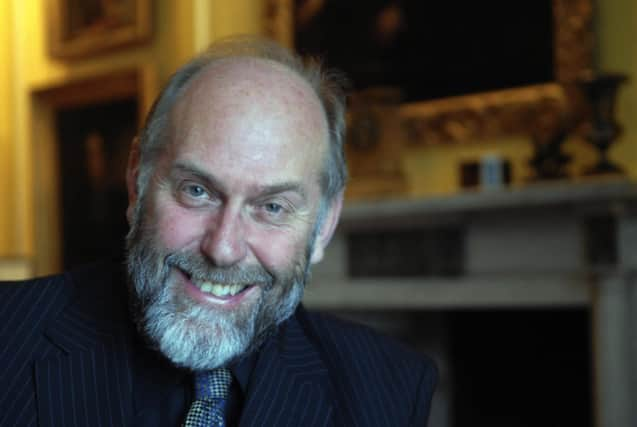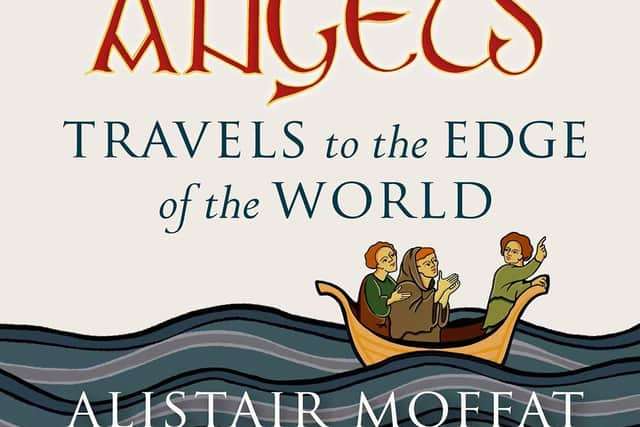Book review: In Search of Angels, by Alistair Moffat


A vogueish new genre has developed recently which combines natural history, cultural history and memoir, often linked to the idea of pilgrimage. Alistair Moffat’s new book fits precisely within this form. It is an account of four journeys, to Eileach an Naoimh, Lismore, Iona and Applecross in search of the remnants of the earliest Christian missionaries. As such there is a great deal that the reader will not have known beforehand. We might all have heard of Columba, but what of Maelrunha, or Donnan, or Brendan? The book’s great virtue is conjuring back these characters, and, more significantly, their differences. Moffat is an engaging guide – a fellow-walker to the reader in his search for these saints.
The opening chapter sets out the background. The “Desert Fathers” advocated withdrawal from the world and extreme asceticism. Many of those in the Celtic Church took up the challenge, but instead of parched dunes looked to craggy islands. There was always a tension between the solitary, the community of monastics and the authority of the Church. How Scotland negotiated this is fascinating. Others, however, sought to whisper in the ear of power, with no small success.
Advertisement
Hide AdThe book concerns itself with the Atlantic shore, and it may be regrettable that it does not therefore deal with the Pictish scriptorium at Portmahomack, or indeed, the Borders monk Drycthelm, who had a vision of hell during this period and then immersed himself daily in the Tweed, saying “I have been to colder places”. But the concentration on the Western coast ties in with a topic Moffat has written on before; the way in which sea-routes were far more important than land-routes in the 5th and 6th centuries. He writes well of the curragh and how it was far more navigable than other boats of the period. The idea of the country as a maritime archipelago has grown increasingly uncontroversial.


There is a certain irony in a book which frequently declares that the author is an atheist, and yet which resorts to words like “spiritual” and “transcendence” and “angels” so often. Moffat may write about Pelagius, but does not go into any detail about his beliefs deemed to be heretical. Some parts are simply naïve: Moffat writes that “the uncomfortable fact that this very beautiful place [Iona Abbey] was founded on that blood-drenched story... The Passion, the final episode, what made Christ’s ministry unique, what validated everything else that had gone before, was a spasm of appalling savagery, of obscene cruelty”. Wait till you see Season Two, because there is quite a twist.
There are passages which are very affecting, such as when the atheist author feels the need to light candles for his grand-daughters. But for each of these we have descriptions of cheese sandwiches and how many shoes he has packed, or that the A9 was blocked. These sections are somewhat laborious, as are the interludes about, for example, the history of CalMac ferries. I could certainly have done without anecdotes about taking John Smith to the Fringe Club, or brags about being put up in a five-star hotel in France that was a “concrete monstrosity”.
The section on Iona I found difficult. Maxwell MacLeod, the son of the founder the Rev George Macleod, has written an eloquent memoir about what a difficult and fractious man his father could be. None of this is cited here. Macleod’s account – which can be found on Bella Caledonia – is intriguing about a man of obvious faith and deep division. It would have made the chapter far richer to include such material.
The book’s singular achievement is in showing how Gaelic might be in decline, but it has left its traces over the country. This is admirable work, and there is a humility in Moffat’s exasperation at being a learner speaker. He parses place names with elegance, and the wry comments on his attempts to speak the language are comical, in a melancholy way. In some ways, I thought that Moffat should actually write a memoir about trying to learn Gaelic. It might make more people try. At the same time, there is a strange snideness: to refer to Samuel Johnson and James Boswell, when they went on their Highland trip as “determined monoglots” is simply untrue. Johnson could read Latin and Greek, Boswell French.
What a curate’s egg of a book. Parts I found intriguing, parts I found blasé. Perhaps the greatest mystery in the book is that Moffat tells us the who, the when, the where of the saints, but never seems to come around to the why. What was the charisma? What was the inspiration?
In Search Of Angels, by Alistair Moffat, Birlinn, £20
A message from the Editor:
Advertisement
Hide AdThank you for reading this story on our website. While I have your attention, I also have an important request to make of you.
The dramatic events of 2020 are having a major impact on many of our advertisers - and consequently the revenue we receive. We are now more reliant than ever on you taking out a digital subscription to support our journalism.
To subscribe to scotsman.com and enjoy unlimited access to Scottish news and information online and on our app, visit https://www.scotsman.com/subscriptions
Joy Yates, Editorial Director